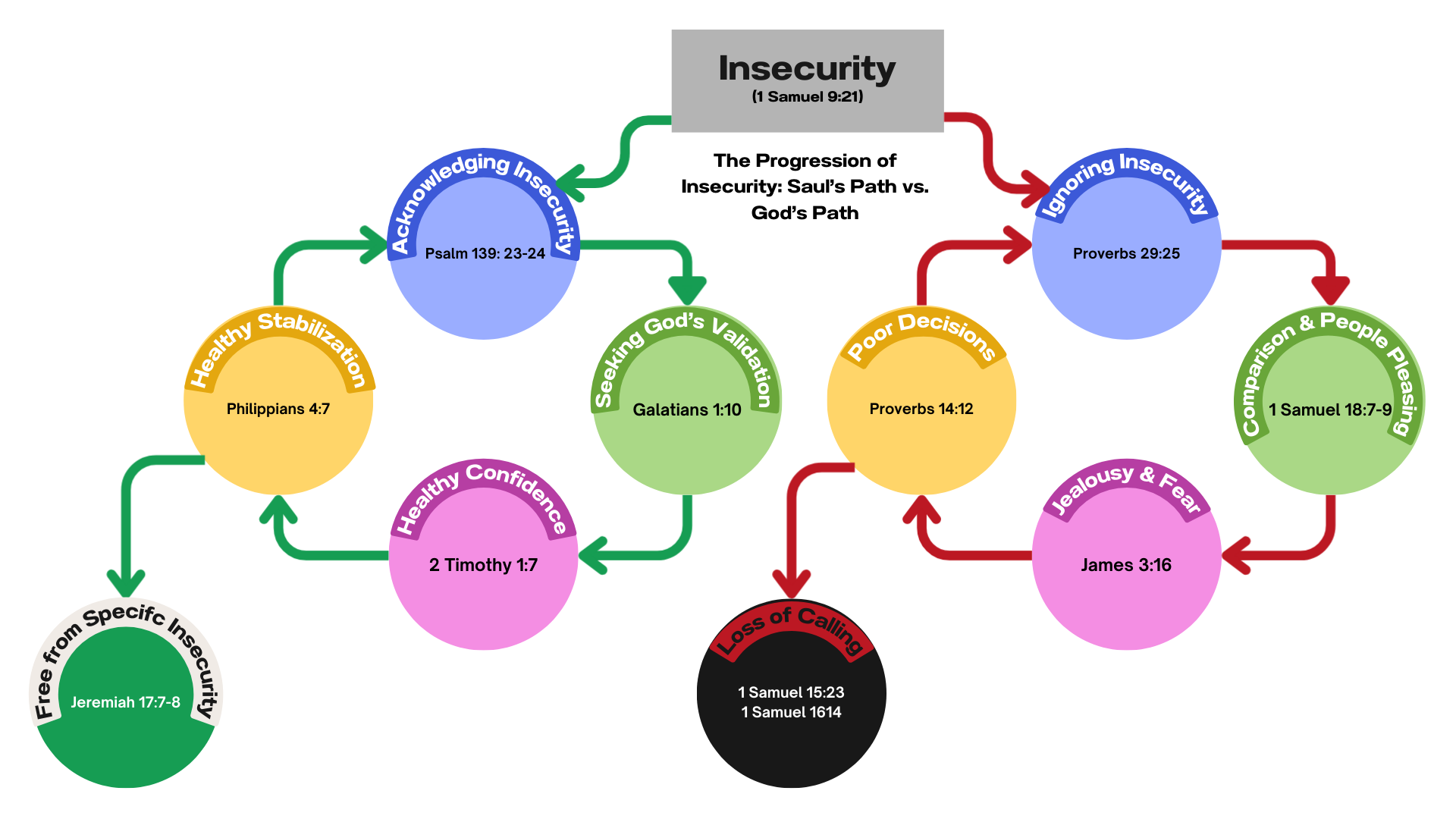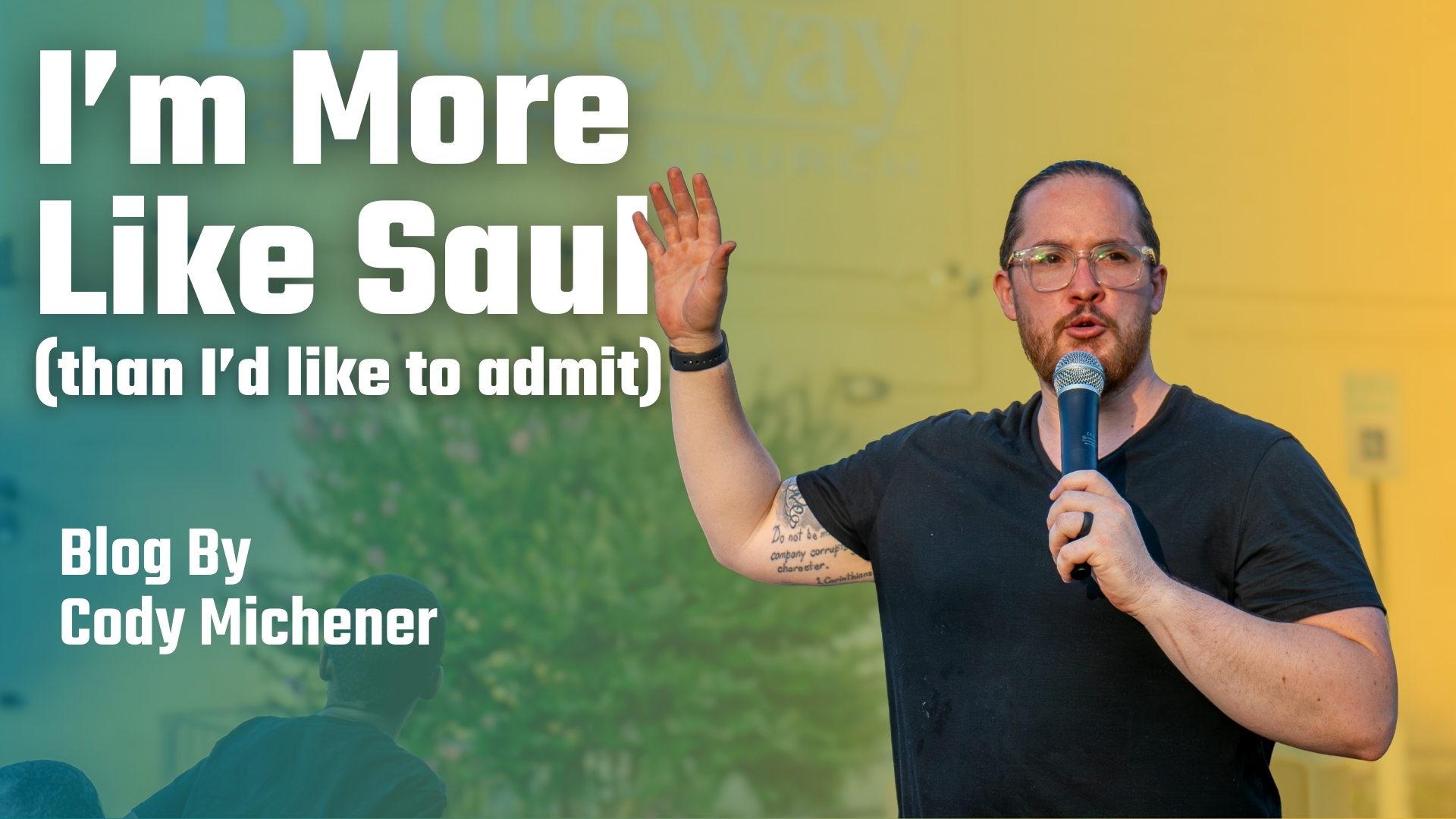When we think of Saul, it’s easy to write him off as a cautionary tale. The first king of Israel who lost everything because of his disobedience. A leader consumed by jealousy. A man whose legacy was marked by insecurity and fear. But the more I sit with Saul’s story in 1 Samuel, the harder it is to distance myself from him. If I’m being honest, I see a lot of Saul in me.
Saul’s downfall didn’t begin with rebellion. It began with insecurity.
When Saul is first introduced in 1 Samuel 9, we meet someone who doesn’t think he belongs. “But am I not a Benjamite, from the least of the tribes of Israel, and is not my clan the humblest of all?” (1 Samuel 9:21). Even after being anointed king by Samuel, Saul goes and hides… literally… among the baggage (1 Samuel 10:22). On the surface, it might look like humility. But dig deeper, and it’s fear. Fear that he’s not enough. Fear that God got it wrong.
And that’s where I find myself relating to Saul. Not in status or outward failure, but in that deep, internal wrestle with insecurity.
A couple weeks ago, I preached at our Owings Mills/Reisterstown campus. When I finished and stepped off stage, I felt very satisfied with how I communicated the word that God put on my heart. I felt proud and content with my delivery. I felt settled in the effort and energy I had poured into it. But no more than 24 hours later, I was with some friends. One of them gave me thoughtful feedback, both encouragement and ideas for growth, and I appreciated it. But another friend didn’t say a word about the message.
When I left that evening, God exposed something in my heart: I had been craving that person’s approval. So much so that I started to question if my sermon was even good enough. I didn’t know I wanted this person’s approval until I didn’t get it. God revealed to me that my self-doubt wasn’t about whether the message had been faithful, it was about my insecurity and desire for affirmation from people.
And that’s where Saul lives in me.
The truth is, insecure people have a hard time celebrating others and a hard time standing confident in their own calling. That’s exactly what happens in 1 Samuel 18, when the women sing, “Saul has slain his thousands, and David his tens of thousands.” Saul wasn’t just jealous, he was undone. Insecurity left unchecked turned into comparison, and comparison turned into hatred.
I’m thinking something: we might be more like Saul than we’re willing to admit.
The battle for your calling often starts in the battlefield of your mind. And undealt-with insecurity does not just make you a weak leader, it makes you a dangerous one.
That’s why Saul’s story is more than a cautionary tale; it’s a mirror. It forces us to ask:
Where am I letting insecurity speak louder than God? Because left unchecked, insecurity doesn’t just rob us of peace; it can derail the very thing God has called us to do.
I don’t want to hide among the baggage anymore. I want to lead, love, and live with a confidence that’s rooted in who God says I am, not in what people say, not in what my fears whisper, not in what my past tries to define. Saul’s story is a warning, yes. But it’s also an invitation: to surrender fear, self-doubt, and the hunger for approval, and to anchor ourselves in the voice of God.
“Am I now trying to win the approval of human beings, or of God? Or am I trying to please people? If I were still trying to please people, I would not be a servant of Christ.”
— Galatians 1:10
If you want to dig deeper, I created a visual framework that can help you consider and think through some of these things.



